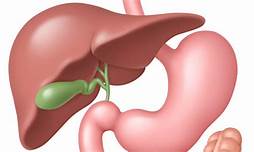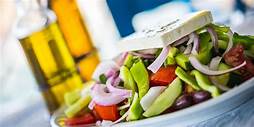Meals Good And Bad
For Gallbladder
Note: Friends, if you are comfortable in reading this article in any other language, please change the language from the translate button at the top of this article.
 |
| The gallbladder is a small organ located beneath the liver that plays a vital role in the digestive process |
Overview
What is the need to care for Gallbladder diet?
The gallbladder is a small organ located beneath the liver that plays a vital role in the digestive process.
It stores bile produced by the liver, which is released into the small intestine to aid in the digestion of fats.
A diet high in fat and cholesterol can cause the gallbladder to become overloaded with bile, leading to the formation of gallstones or other complications.
Therefore, it is essential to maintain a healthy gallbladder diet to prevent such complications.
A balanced diet that includes plenty of fiber, fruits, vegetables, and whole grains can help regulate the digestive system and prevent gallstones from forming.
Limiting the intake of high-fat and high-cholesterol foods, such as fried foods, fatty meats, and dairy products, can also help reduce the risk of developing gallstones.
In addition, staying hydrated by drinking plenty of water and limiting alcohol consumption can also support a healthy gallbladder.
Overall, a healthy gallbladder diet can promote digestive health and prevent complications related to the gallbladder.
Does diet play a role in gallstones?
Yes, diet can play a significant role in the formation of gallstones. Gallstones are hard deposits that form in the gallbladder due to an imbalance of cholesterol and bile salts.
When the bile in the gallbladder becomes too concentrated, it can form solid particles that eventually grow into gallstones.
A diet that is high in fat, cholesterol, and refined carbohydrates can increase the risk of developing gallstones.
High-fat foods can cause the gallbladder to release more bile, which can lead to an overproduction of cholesterol in the bile.
Additionally, a diet low in fiber and high in processed foods and sugar can cause the liver to secrete more cholesterol, contributing to the formation of gallstones.
On the other hand, a diet that is rich in fruits, vegetables, whole grains, and lean proteins can help prevent the formation of gallstones.
These foods can help regulate the digestive system, promote the flow of bile, and reduce the risk of cholesterol buildup in the gallbladder.
Therefore, making healthy dietary choices can play a crucial role in the prevention of gallstones.
What are meals healthy for the gallbladder?
 |
| A healthy gallbladder diet should include a variety of nutrient-rich foods that can support digestive health |
A healthy gallbladder diet should include a variety of nutrient-rich foods that can support digestive health and reduce the risk of gallstones.
Here are some examples of meals that are healthy for the gallbladder:
Breakfast:
Oatmeal with fruit and nuts
Scrambled eggs with whole-grain toast and avocado
Greek yogurt with berries and granola
Lunch:
Grilled chicken or fish with roasted vegetables and quinoa
Salad with leafy greens, grilled chicken, and olive oil and vinegar dressing
Lentil soup with whole-grain bread
Dinner:
Grilled salmon with roasted sweet potatoes and asparagus
Grilled tofu with stir-fried vegetables and brown rice
Turkey chili with mixed vegetables and whole-grain pasta
Snacks:
Fresh fruit with nut butter
Hummus with raw vegetables
Low-fat cheese with whole-grain crackers
Overall, a healthy gallbladder diet should be rich in fiber, lean protein, healthy fats, and whole grains, while limiting processed foods, high-fat and high-cholesterol foods, and refined carbohydrates.
Additionally, staying hydrated by drinking plenty of water throughout the day can also support gallbladder health.
What are the meals one should avoid for gallbladder health?
To promote gallbladder health and reduce the risk of gallstones, it is important to limit or avoid certain foods and meals that can be harmful to the gallbladder.
Here are some examples of meals to avoid for gallbladder health:
High-fat meals:
Fried foods such as french fries, fried chicken, or onion rings
High-fat meats such as bacon, sausage, or fatty cuts of beef or pork
High-fat dairy products such as whole milk, cream, or cheese
Processed and refined foods:
Processed snacks such as chips, crackers, and cookies
Refined carbohydrates such as white bread, pasta, and rice
High-sugar foods such as candy, soda, and baked goods
Spicy or acidic meals:
Spicy foods such as hot peppers, chili, or curry
Acidic foods such as citrus fruits, tomatoes, or vinegar-based dressings
Other foods to limit or avoid:
Alcohol
Caffeine
Carbonated beverages
Overall, a healthy gallbladder diet should be rich in whole foods, including fruits, vegetables, whole grains, lean protein, and healthy fats, while limiting or avoiding processed, high-fat, and high-cholesterol foods.
It is always best to consult with a healthcare professional or a registered dietitian for personalized advice on a gallbladder-friendly diet.
Our Other Must-Read Articles:
What are the other factors that affect gallbladder health?
In addition to diet, there are several other factors that can affect gallbladder health. Some of these factors include:
Age:
As people age, the risk of developing gallstones increases. This is due in part to changes in the body's metabolism and hormonal balance.
Gender:
Women are more likely to develop gallstones than men, particularly during pregnancy or while taking hormonal contraceptives.
Genetics:
There is a genetic component to gallstone formation, and a family history of gallstones may increase an individual's risk.
Obesity:
Being overweight or obese can increase the risk of gallstone formation, as excess body weight can lead to an overproduction of cholesterol and an increase in the amount of bile that the gallbladder must store.
Sedentary lifestyle:
Lack of physical activity can also increase the risk of gallstone formation, as regular exercise can help regulate the digestive system and prevent bile from becoming too concentrated.
Medical conditions:
Certain medical conditions such as diabetes, Crohn's disease, and liver disease can also increase the risk of gallstone formation.
Rapid weight loss:
Rapid weight loss, particularly through crash diets or fasting, can also increase the risk of gallstone formation as it can cause the liver to release excess cholesterol into the bile.
Medications:
Some medications can increase the risk of gallstone formation, particularly cholesterol-lowering drugs and certain antibiotics.
Ethnicity:
Some ethnic groups, such as Native Americans and Mexican Americans, have a higher incidence of gallstones than others.
Medical procedures:
Certain medical procedures, such as gastric bypass surgery, can increase the risk of gallstone formation due to changes in the digestive system.
Hormonal changes:
Changes in hormones, particularly during pregnancy or menopause, can increase the risk of gallstone formation.
Hormonal contraceptives can also increase the risk of gallstones in some women.
Chronic inflammation:
Chronic inflammation of the gallbladder or bile ducts can lead to the formation of gallstones over time.
It is important to note that not all individuals who have one or more of these risk factors will develop gallstones, and some people may develop gallstones despite having no apparent risk factors.
Therefore, it is important to maintain a healthy lifestyle, including a balanced diet, regular exercise, and a healthy weight, to promote optimal gallbladder function and reduce the risk of complications.
If you are concerned about your gallbladder health or have a family history of gallstones, it is always best to consult with a healthcare professional for personalized advice.
What meals are good after Gallbladder Surgery?
After gallbladder surgery, also known as cholecystectomy, it is important to follow a diet that is easy to digest and low in fat.
This is because the gallbladder is responsible for storing bile, which helps digest fats.
Without a gallbladder, bile flows directly from the liver into the small intestine, which can cause digestive discomfort and diarrhea if too much fat is consumed.
Here are some meals that are good options after gallbladder surgery:
Lean protein sources:
Examples include skinless chicken or turkey breast, fish, tofu, and legumes. These foods are low in fat and easy to digest.
Whole grains:
Examples include brown rice, quinoa, and whole wheat bread. These foods are high in fiber and help regulate digestion.
Vegetables:
Examples include leafy greens, carrots, broccoli, and bell peppers. These foods are low in fat and high in fiber and nutrients.
Fruits:
Examples include berries, apples, and bananas. These foods are low in fat and high in fiber and antioxidants.
Low-fat dairy products:
Examples include skim milk, low-fat yogurt, and cottage cheese. These foods are low in fat and provide calcium and other nutrients.
It is important to avoid high-fat, greasy, or fried foods, as well as spicy or acidic foods, which can irritate the digestive system.
It is also important to eat small, frequent meals throughout the day, rather than large meals, to help regulate digestion.
Gradually reintroduce foods into your diet, and pay attention to how your body responds to different foods.
If you experience digestive discomfort or diarrhea, try reducing the amount of fat in your meals or avoiding certain foods.
If you have any concerns about your diet after gallbladder surgery, it is always best to consult with a healthcare professional or a registered dietitian for personalized advice.
Friends, Stay Fit, Stay Happy
----------------------------------------------------------------------------
Friends, if you liked it, please share it with your friends.
SHARING IS CARING.
Compiled by: Paramjit Singh Rana

Comments
Post a Comment